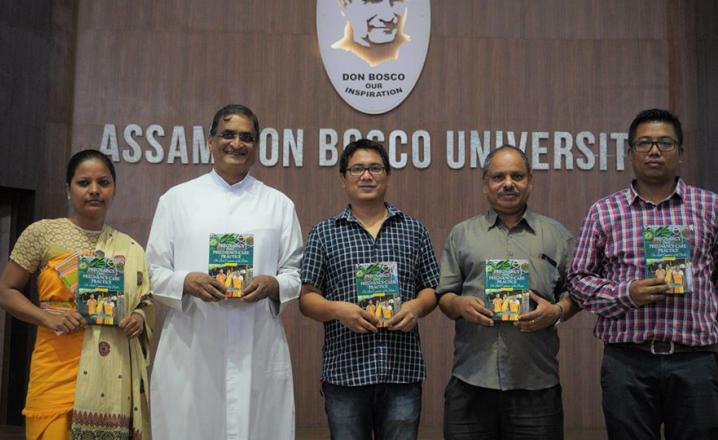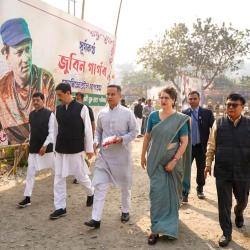Guwahati: A book entitled ‘Pregnancy and Pregnancy Care Practice – the lived experience of the Bodos’ authored by Assistant Professor at Department of Sociology Dr. Jacob Islary was officially launched today, 29th October 2019 by Vice Chancellor, Assam Don Bosco University Fr. (Dr.) Stephen Mavely, in the presence of a large gathering of faculty and students of the University.
Introducing the book, the author Dr. Islary spoke of ‘his childhood observation of the phenomenon of pregnancy and pregnancy care practice among communities – social and community sanctions outside marriage and celebrations within marriage’ and later his thought on ‘how did communities in the past understand pregnancy and take care of pregnant women vis-à-vis the modern conceptulisation and care model especially promoted by the formal health service providers which is also the fundamental question of the book.
Speaking on the occasion Fr. (Dr.) Mavely spoke of the book as ‘a socially relevant research based contribution to society.’
The book carries a foreword by Prof Virginius Xaxa, Former Deputy Director, TISS – Guwahati Campus, who has described it as an ‘attempt to fill the void in literature on health in general and reproductive health in particular with focus on maternity experience of one of the tribal communities in India…’ especially in Northeast region where research on ‘security perspective’ have been dominant with a little shift towards interest in ‘economic development with focus on agriculture… and from social aspect on education.’
The book is placed within a community context and experience of the Bodos of Pregnancy and its care practice – the traditional providers which is based on tradition, culture, values and community ethos vis-à-vis the modern providers that emphasise on safety and effectiveness for health outcomes. I
In summary, the Bodos understand pregnancy as a natural part of healthy life (but as an exclusive right within marriage); and pregnancy care as service given to a pregnant woman for safe pregnancy and delivery through counseling, prescription of health behavior, use of preventive, promotive, remedial and curative rituals and medicines including those based on nature when necessary, and proscription of taboos.
The book further notes that while a woman who is able to bear children is considered specially blessed in communities, a childless Bodo woman however is not discriminated and is allowed to participate in all social, cultural, religious and other occasions and events with equal rights and status.
The book is published by Mittal Publications, New Delhi. ISBN: 8183249507/9788183249508
- 11395 reads










Add new comment